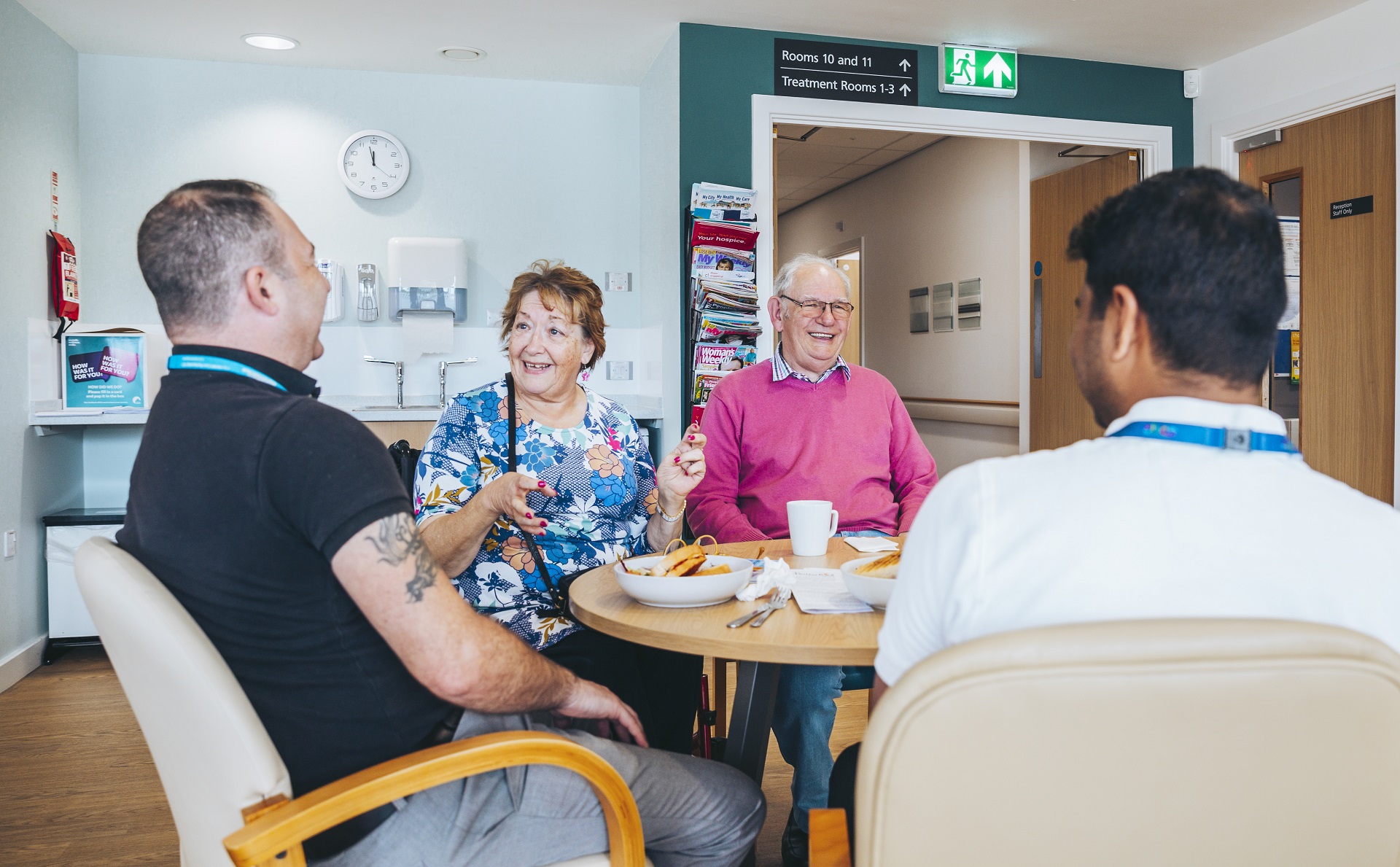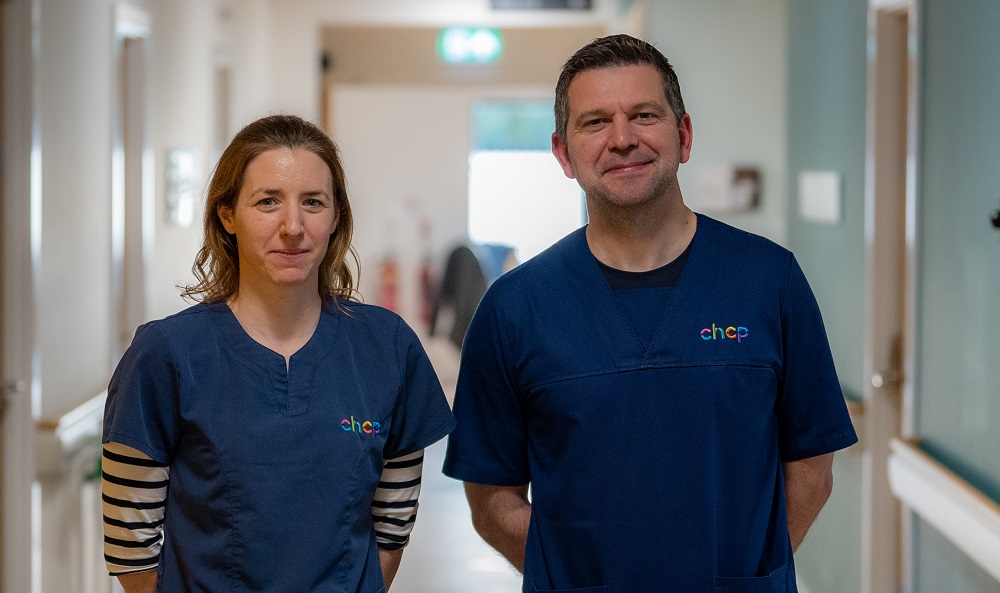Health and social care case studies
The Jean Bishop Centre – CHCP

How one clinic in Hull cut emergency admissions for frail people by 50%
Health nerd quiz question! What common condition increases an individual’s likelihood of attending a GP surgery by over 50%, undergoing emergency care by 216% and adds almost £6 billion pounds to the NHS bill each year? Diabetes? Heart failure? Cancer? It’s actually something that is barely recognised as a medical condition: frailty.
So, when a frontline innovation manages to cut emergency admissions for the most severely frail people by 50%, it’s worth paying attention. This outcome was achieved by the Jean Bishop Centre – a unique initiative of the City Health Care Partnership (CHCP), a social enterprise working in Hull, and led by two remarkable physicians: Anna Folwell and Daniel Harman.
Anna and Dan will tell you that the key to their success is flipping the usual model of care on its head. The CHCP and its workforce are committed to the idea that it should be the individual who shapes the support they receive rather than the public sector body. As such, their assessment of a person’s needs begins with a very detailed conversation about their experiences, their hopes, their needs.
Armed with that understanding, the clinicians and others working at the Centre can work out exactly what is needed to maintain the health and well-being of someone with frailty and their care-givers and provide it in as effective and flexible a way as possible. And that regularly involves bringing in wider community and voluntary sector support from organisations, often located in the Centre themselves, enabling immediate connection to the people looking for help.
Pete’s story*
Pete’s story is a case in point. A care home resident in his seventies, Pete’s health had worsened significantly in recent weeks. Severely frail with advanced dementia and multiple conditions, he was eating far less, wandering more and at growing risk of falling and hurting himself. The residential home felt it could no longer offer appropriate care. Under normal circumstances, a situation that would often result in an emergency hospital admission followed by a lengthy stay, draining hospital resources and often leading to a further deterioration in the individual’s overall health and well-being.
Luckily, Pete was referred to the Jean Bishop Centre. The staff there first undertook a very detailed medical review which resulted in Pete being placed on a more humane and effective regimen. Some of the medications he had accumulated in recent years and which were now doing more harm than good were removed while other underlying conditions that had gone undetected were treated for the first time.
Most importantly though, the Centre spoke with Pete and his wife, Joan, in detail about what they really wanted – and the key thing was for Pete to stay in a care home where he felt supported and connected to others. So, working with the Alzheimer’s Society in Hull and their own knowledge of the local residential care network, the Centre was able to find a new care home place for Pete while also offering greater support to his wife. The result: a healthier and happier Pete, a relieved Joan and a long hospital stay avoided.

Anna Folwell and Daniel Harman
Doing with, not doing to
Pete’s story exemplifies a spreading approach that seeks to ‘do with’ people rather than ‘do to’ them. Most fundamentally that means doing with the person or family in need of support or care as well as working closely with organisations and people outside the public sector institution, particularly those in the voluntary and community sector.
But it also involves senior leaders ‘doing with’ rather than ‘doing to’ frontline professionals by trusting them to make the right decisions both in the radical redesign of a service and in its day-to-day delivery. This is often overlooked when frontline innovations are analysed but ask the City Health Care Partnership what enabled them to develop and deliver such an effective approach at the Jean Bishop Centre and they are clear. As an independent social enterprise, they have been able to break away from the hierarchy and bureaucracy of the mainstream public sector and free up their clinicians and other employees to think for themselves, take risks and focus on impact and outcomes rather than targets and processes imposed from above. A mindset summarised in a phrase one hears a lot at CHCP: “say yes before you say no”.
And it’s an approach that has had an impact across the whole of Hull. When it first opened its doors, the Centre set itself the goal of reaching as many of the 3,000 people with severe frailty in Hull as it could. Within two years, it had worked with 90% of that population. That led not only to the 50% reduction in emergency admissions for the most severely frail in that group but also a 10-25% reduction in GP visits for the rest of the group. Work with a wider cohort with less severe frailty has led to an overall reduction in A&E admissions for people over 80 by 13.6% and for residents in care homes by 18% and reduction in medicine costs of £100 per person per year.
The human impact
Of course, reduced admissions and innovative ideas are only ultimately tools to achieve the one thing that matters: meaningful improvement in the health and well-being of individuals and their loved ones. An independent evaluation found that the Centre significantly improved the overall wellbeing of older people living with frailty at 2-4 weeks and at 10-14 weeks after the intervention. In contrast, the evaluation control group experienced a decline in well-being over the same time-frame.
And you won’t find a clearer example of what a ‘do with’ approach can mean in human terms than taking five minutes to watch this film about Ray. What he needed to massively improve his life was far less complex than Pete – an electric wheelchair and a ramp – but the simple fact that the Jean Bishop Centre really listened to his needs, treated him with respect and then did everything in its power, as quickly as possible, to respond is impactful beyond any quantitative measure. Get ready to shed a tear or two!
*Names have been changed in Pete’s story.



